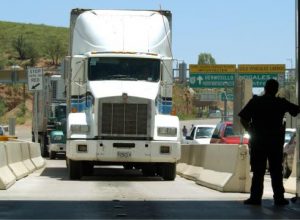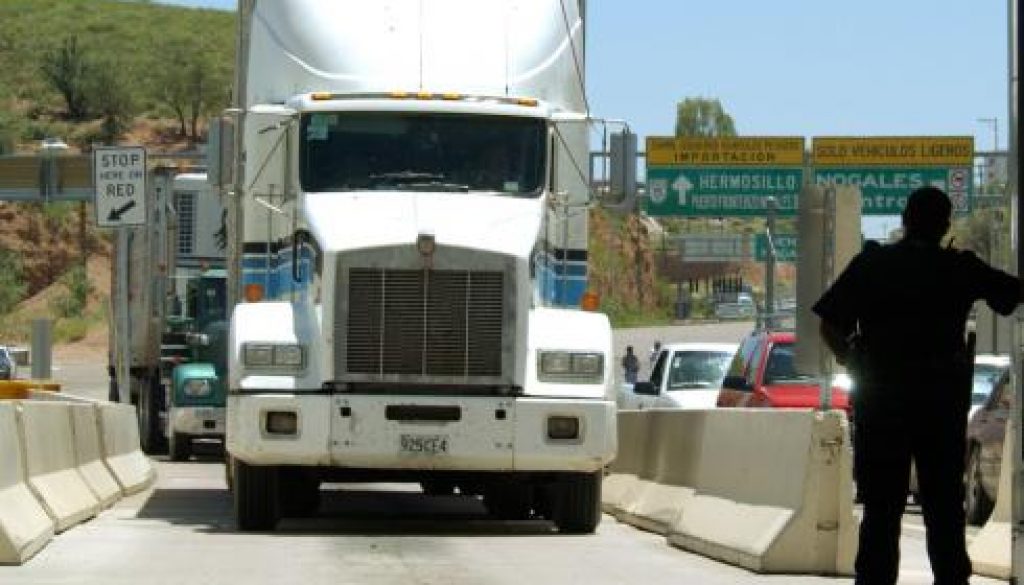U.S. – Mexico cross-border trucking agreement

A United States Customs agent waits for a northbound truck crossing the border to enter the United States from Nogales, Mexico.
By: Adina Moloman
Sources: Reuters, BBC News
After nearly 17 years, the U.S. and Mexico have agreed over a pilot program that will end the dispute over cross-border trucking that subjected the U.S. to billings in punitive tariffs.
In March, President Obama and Mexican president, Felipe Calderón, signed an agreement that provides for Mexican trucking companies to gain certification as safe to operate on U.S. highways. Under the terms of the final deal, signed by their respective transportation secretaries, both sides agreed this month July, 2011) to drop their barriers for a trial period of three years. Mexico will suspend half of the subject tariffs within 10 days. The rest will be eliminated when the first Mexican trucking company is allowed to deliver goods into the U.S.
U.S.-Mexico cross-border trucking agreement comes as a positive response for the Mexico Maquiladora Industry.
The North American Free Trade Agreement provides for free trade across the Mexican, U.S. and Canadian borders, but was never fully implemented, forcing Mexican companies to unload at the border and reload into American trucks, which was slowing the activities of transnational corporations that operates at the US- Mexico Border.
The United States agreed under the North American Free Trade Agreement, which went into force in 1994, to allow Mexican truckers to operate in the United States, but this wasn’t possible because opponents in Congress have thrown up repeated roadblocks to keep Mexican truckers off U.S. roads.
Mexican trucks will be allowed to carry loads to a U.S. destination and bring cargo back to Mexico. They won’t be able to deliver goods between two U.S. cities. U.S. trucks will be allowed to circulate in Mexico under the same guidelines.
The pilot program will be reinstated with Mexican lorry drivers getting a provisional 18-month license that may lead to permanent approval. In order to do that there are a few requirements: Electronic monitoring systems will be mandatory to keep a record of how long the vehicles are in service; safety reviews, drug tests, and drivers will be assessed on their English-language proficiency.
The opposition has tabled a bill to block the Obama administration from implementing the program, arguing the concerns over safety, security and loss of jobs into the U.S.





